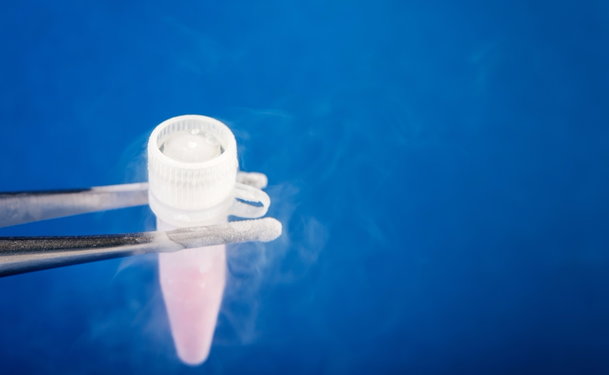Sperm banking is the collection and storage of semen. In some cases, it is done in order to preserve the sperm quality in men who are at risk of infertility. This may result from a medical procedure, a high-risk occupation or something in their environment.
Male infertility is due to a low production of sperm, abnormally-functioning sperm, or blockages that prevent sperm from being ejaculated. These can be caused by illnesses, health problems, injuries, lifestyle choices, or otherwise unknown factors.
Not every case of male infertility can be predicted. When a risk of infertility is identified beforehand, men can use therapeutic sperm banking (or cryopreservation) to ensure that they will still be able to have children at a later time.
Predictable causes of male infertility
A man’s fertility can be affected by several factors, including:
- Medical treatments
- Injury to the testicles at work or during other activities
- Exposure to toxic chemicals or radioactive substances
Medical treatments - Some cancer treatments can cause temporary or permanent male infertility. These include certain chemotherapy drugs, radiotherapy in some areas of the body, or surgery to remove the testicles or the prostate. Other surgeries in the abdomen or groin can also damage the tubes that carry the sperm. In addition, men undergoing a vasectomy can bank their sperm in case they change their mind later.
Injury - Any activity that injures the testicles can also cause male infertility. This includes for men who are in high-risk occupations like military personnel or athletes. Welding or prolonged driving (such as long-distance truck driving) may be linked to a decrease fertility, although more research is needed.
Toxic chemicals or radioactivity - Extended exposure to industrial chemicals — such as pesticides, herbicides, painting materials, organic solvents and other environmental factors — can affect a man’s fertility. Other risk factors, such as heavy metals and X-ray radiation, also play in a role.
When do I need to choose sperm banking?
You need to consider banking your sperm if your fertility is at risk and you think you might want to have children in the future. Deciding whether to bank your sperm is a personal decision, but you may want to include your partner in that choice.
If you are concerned that your fertility could be damaged by medical treatment, an activity at work or exposure to something in your environment, you should talk to your doctor as soon as possible.
If you are undergoing cancer treatment, your doctor will likely bring this up during one of your visits. You should decide as soon as possible after your diagnosis of cancer. It is generally safe to collect sperm during the first week of radiation or chemotherapy treatments.
If you are undergoing another medical procedure, such as a vasectomy, you will need to decide before you have surgery. If you are exposed to harmful substances in the environment, don't wait. The longer you wait to decide, the higher the chances your fertility will be damaged.
Even if the quality of your semen is not ideal — a low sperm count or poor sperm motility — you can still bank your semen. Some methods like intracytoplasmic sperm injection (ICSI) require only one live sperm. However, if you have better semen quality, you may be able to use other, less expensive methods for fathering a child.
Updated on August 1, 2016


